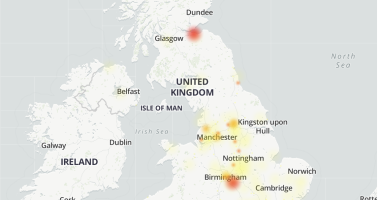
Borrowers who used Help to Buy loans to purchase their homes and are now selling up are finding rising house prices have bumped up their debt and created a nice litle earner for the Government.
The number of home buyers using Help to Buy Equity Loans has surged by 40 per cent in a year, most recent figures show, but those using the taxpayer cash to boost deposits are warned to bear in mind the amount they owe is linked to the property’s value.
Those who bought properties using the scheme years ago face paying back more than they initially borrowed on initially interest-free taxpayer loans, due to accelerating house prices and loan amounts being based on a stake in their home.
House prices increased by more than 10 per cent in the year to March 2021, according to the ONS figures, bumping up the value of the government’s stake in homes bought with Help to Buy Equity Loans.


Buyers looking to take advantage of the Help to Buy: Equity Loan could struggle to exit the scheme in a few years’ time if house prices fall significantly
Property inflation has also life particularly difficult for first-time buyers, who need to save higher deposits without the benefit of increased equity in an existing property that home movers have.
It is therefore perhaps not surprising that more have turned to the Help to Buy: Equity Loan scheme, where the Government lends them up to 20 per cent of the purchase price of a new build home interest-free for five years, in their droves.
In London, loans can be up to 40 per cent of the purchase price due to higher property values.
But instead of loans being a set amount borrowed, as a mortgage would be, they are taken as a stake in the property – meaning that as a home rises in value, so too does the amount needing to eventually be repaid to the state.
Recent Government figures show that 21,000 homes were bought with one of the Government-backed loans between October and December 2020, a rise of 40 per cent compared to the same period in 2019.
The vast majority, 82 per cent, of buyers who have used the scheme since its inception in 2013 were buying their first home. Since April 2021 it has only been open to first-time buyers.
So if a borrower took 20 per cent of their original deposit from the Government scheme, they would pay back 20 per cent of what their house is worth today.
A normal housing market is characterised by sustained, moderate increases in price, along with the occasional period of stagnation or slight fall.
So by year five when they must start paying interest on the loan, most Help to Buy users have historically built up enough equity to pay it off.
But the events of the last year have thrown that off kilter. Rapid house price inflation has driven up the amount those early adopters now moving home are having to pay back.
Meanwhile, with some predicting that house prices will fall once the stamp duty holiday comes to an end, are today’s Help to Buy borrowers storing up problems for the future?


Help to Buy offers prospective home owners the option of a lower deposit, as the Government loan boosts their savings pot
‘When the loan is eventually repaid to the Government, the amount that needs to be paid back depends on the value of the house at that time,’ explains Sarah Coles, personal finance analyst at Hargreaves Lansdown.
‘If you borrow 20 per cent of the purchase price, you repay 20 per cent of the value after five years, so when prices rise, so do your repayments.’
If house prices go down, you have the opposite problem. You may pay back less or a similar amount to what you borrowed, but you won’t have built up much equity in your home – meaning you could struggle to get your next mortgage and leave the Help to Buy scheme.
This means that the current spike in house prices could potentially be bad news for both those who used Help to Buy in the past and are yet to repay, and those just starting out on the scheme now.
What happens if I take out a Help to Buy Equity Loan and then house prices fall?
Many borrowers remortgage away from Help to Buy before the interest repayments kick in, and use the equity they have built up to repay the Government.
Essentially, you need to weigh up whether to keep your lower loan-to-value Help to Buy mortgage and its preferential interest rate, but still be paying the interest on your Help to Buy loan; or to use the equity in your home to pay off the loan, but then take out a new, higher loan-to-value mortgage which will be more expensive.
If today’s high house prices were to fall significantly, there is the risk that buyers would not have enough equity to repay the loan.
If they still didn’t have enough by the time their fixed-term mortgage deal ended, they may need to move on to a Help to Buy remortgage and be stuck paying the interest on the Help to Buy loan.
This can quickly spiral. The interest rate starts at 1.75 per cent in year six, and after that it rises in line with the Retail Price Index measure of inflation plus 1 per cent each year.
For someone who bought a £200,000 home with a 20 per cent (£40,000) Help to Buy equity loan, they would pay just a £12 management fee each year in years one to five.
But in year six that would rise to £712, and in year 10 to £896 – on top of mortgage payments.
In London where buyers can borrow up to £240,000, the costs could be much higher.


Help to Buy can assist people who want to get on the housing ladder – but could it be storing up problems when they come to repay?
Mark Harris, chief executive of mortgage broker SPF Private Clients, says: ‘Those who originally bought using Help to Buy in the early years benefitted from house price inflation, which allowed them to consider exiting the scheme at the point of remortgaging – they were able to capital raise to buy out the Help to Buy mortgage and remortgage onto a standard product.
‘There followed a period when house price inflation was flat so that borrowers were not able to do this, and were limited to Help to Buy remortgage providers.’
With analysts predicting the current stratospheric price increases cannot last forever, the risk of returning to this situation is relatively high.
The problem with this is that lenders’ criteria on remortgaging Help to Buy homes is often strict.
‘If prices fall from here, a separate fly crawls into the ointment, because after five years, when fees start becoming payable, many buyers remortgage onto a standard mortgage in order to repay the Government,’ Coles explains.
‘They take advantage of house price rises building the equity in their home in order to qualify for a normal mortgage. If prices don’t rise (or if they fall), the equity in their home won’t build as quickly, so they may struggle to find another lender to take them on – and could end up being stuck paying fees to the Government.’
One thing that could help is if the buyer’s income has increased significantly in the time between them taking out the loan and seeking a remortgage.
‘When first purchasing through the Help to Buy scheme, the affordability assessment is incredibly strict, far more so than a standard mortgage application. As a result, it’s not always maximising your affordability in the same way,’ says Matt Coulson, director at Heron Financial.
‘This means that when you come to remortgage, such as at the end of your five-year term in order to pay off the Government loan, your lender isn’t bound by the same restrictions, and you can often increase the mortgage capacity in order to do so.
‘Another consideration is that generally those who use Help To Buy are able to predict income increases during the five years your Help to Buy loan is interest free, meaning when you then come to remortgage, your lending capacity is greater still.’
Help to Buy is not the only option for those buying a home, either. Many mortgage lenders are now offering mortgages with 5 per cent deposits, which may make getting on the property ladder more achievable without the need to use the Government scheme.
However, borrowers will still need to meet minimum loan-to-income ratios which are usually set at 4.5 times their salary.
They will also find that their mortgage rate is higher if they pay only a small deposit.
I took out a Help to Buy: Equity Loan a few years ago: Should I repay it now or start paying interest?
The other side of the coin is that those who bought using Help to Buy before the pandemic may now be looking to pay back the loan, perhaps because they want to move or remortgage to a better deal, or because they are approaching the five-year limit where interest payments kick in.
The Help to Buy repayment is based on the current value of the home, not the amount that they borrowed. Because house prices have risen so much in the past year, the repayment might be more than they had expected and budgeted for.
‘Someone who bought the average house in December 2014, borrowed 20 per cent from the Government, and repaid five years later, would pay around £2,000 less than someone who did the same a year later and had 2020s’s runaway house prices factored into the calculations,’ explains Coles.
This is what happened to Emmanuel Kumi, 32, a mortgage broker from Hertfordshire.
‘We moved just before the first lockdown, at the beginning of last year. We sold our flat in London, and moved to Bishops Stortford in Hertfordshire to buy a house.
‘We always planned to pay back the Help to Buy loan as quickly as possible. We didn’t really need to use it, but we were expecting a baby when we moved and we wanted to keep costs low.
‘But now, house prices are going up because of the stamp duty holiday. We bought our home for £465,000, and we have noticed similar homes in the area now selling for £550,000.
‘Whether we will pay the loan back this year or not really depends on the valuation we get.
‘I’m quite conscious that we don’t know where house prices will be in another couple of years’ time – but at the same time, I would like to get the loan paid off.’
The obvious benefit here is that anyone remortgaging or selling their home now will probably have seen a significant uptick in equity – though some will baulk at having to hand over a sizeable chunk of that to the Government.
Delaying repaying the loan with the expectation that house prices fall is an option, although this will depend on how close the buyer is to interest payments kicking in.
‘In remortgaging away, depending on house price inflation and what loan-to-value bracket you fall into, the product may be more expensive but there will be no loan interest payments to make, plus you will benefit from the full impact of any uptick in property value going forward,’ says Harris.
‘For example, if you had a Help to Buy London equity loan of £240,000 (40 per cent), in year six you would have to budget for monthly interest repayments of £350, so it is not an inconsiderable amount.
‘While the incumbents may resent forgoing part of the capital gain (20 per cent), they will still benefit from the rest.’
The Help to Buy Equity Loan scheme can be used to purchase a new build property up to the value of £600,000, with a maximum equity loan of £120,000 (20 per cent). In Greater London, the maximum equity loan is £240,000 (40 per cent).
Since April 2013, the mean purchase price of properties bought with a Help to Buy Equity Loan was £274,668, with a mean loan of £60,490.
The scheme has run since 2013, but a revised version with more restrictions was introduced at the beginning of this year.
It is now only open to first-time buyers, and there are new regional limits meaning homes purchased must cost no more than 1.5 times the average first time buyer property price in that area.









